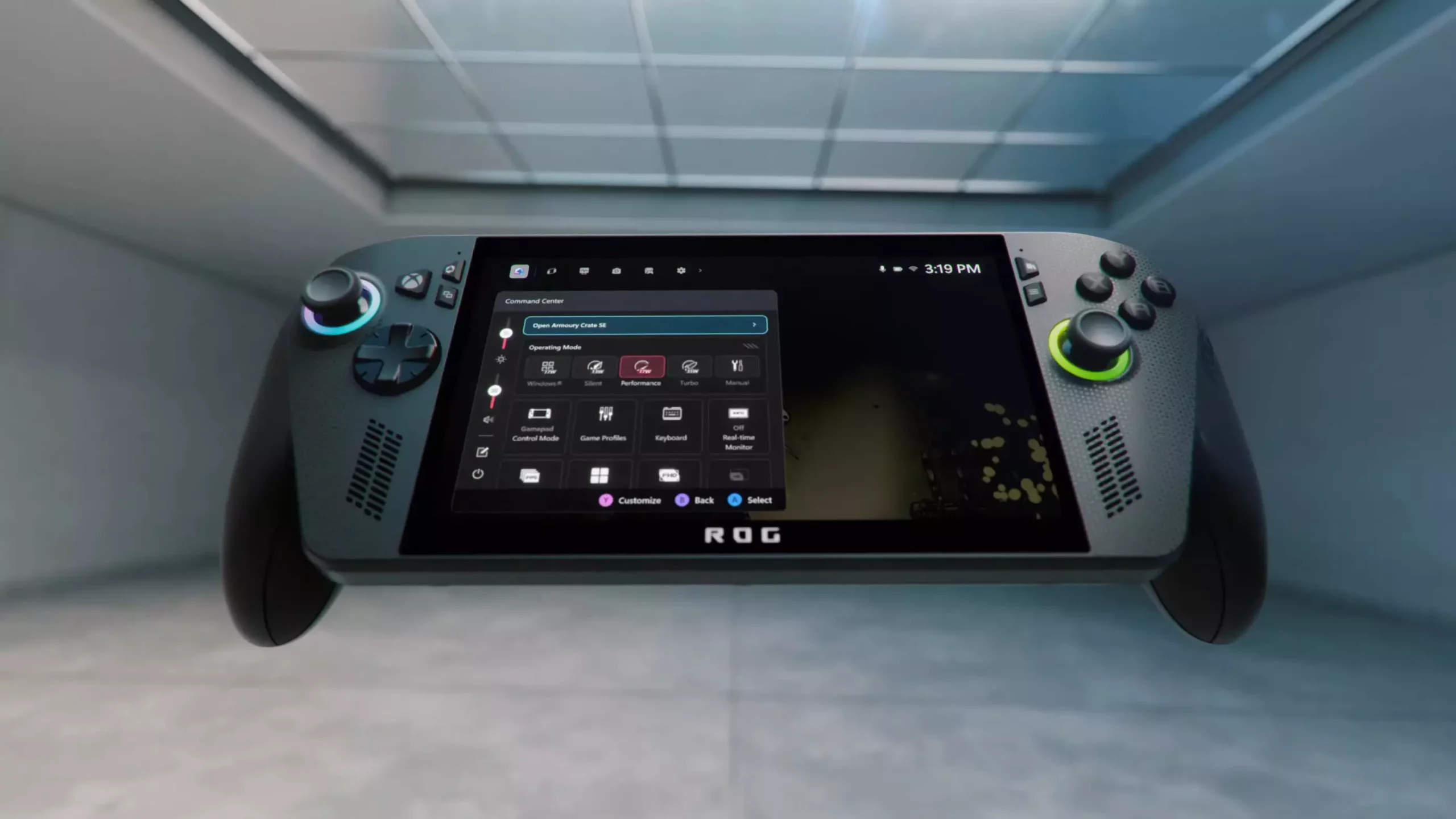Recent discussions surrounding the fate of the Xbox handheld console suggest a seismic shift within Microsoft’s gaming strategy. Reports from The Verge suggest that this anticipated handheld device, which seemed to have just emerged on the gaming landscape, may already be on the chopping block. The abruptness of such claims has left many puzzled, particularly since the technology world was only beginning to buzz about the potential of a handheld Xbox. However, as we delve deeper, it becomes clear that this is more than mere speculation—it signals a transformative moment for Xbox and the broader gaming industry.
The specter of cancellation and the uncertainty surrounding the Xbox handheld are indicative of a much larger narrative unfolding within Microsoft. The recently introduced Asus ROG Xbox Ally X and ROG Xbox Ally are not traditional Xbox devices; rather, they are reimagined PC handhelds integrating existing PC components with a distinct build of Windows tailored for a more refined gaming experience. This raises the question: is Microsoft pivoting away from conventional console models towards an adaptable, more inclusive platform that capitalizes on the burgeoning trend of portable gaming?
Rethinking the Hardware Landscape
The future, as speculated by industry observers, hints at a world where Microsoft’s role as a hardware manufacturer fades into the background. Instead, it appears that the tech giant may prioritize partnerships with established hardware makers like Asus to distribute the Xbox brand. This rethinking of hardware production aligns with a strategic move towards embracing Game Pass subscribers. Rather than solely focusing on selling consoles, Microsoft seems intent on creating a flexible ecosystem that allows gamers access to Xbox experiences on a variety of devices.
While handheld gaming is experiencing a renaissance, it is essential to consider that a vast majority of Xbox’s potential audience does not see handhelds as their primary gaming solution. The vision that surfaces is one of multiple hardware options under the “Xbox” label, each catering to different price points and user preferences. This forward-thinking model positions Microsoft to innovate continually and adjust according to market demands rather than being tethered to traditional, singular console releases.
Underpinning the User Experience
Central to this new direction for Xbox is a streamlined version of Windows designed explicitly for the gaming experience. Many industry experts believe this effort is not merely for handheld devices but rather a precursor to a more extensive array of Xbox-compatible hardware. As Tom Warren argues, Microsoft’s ambition appears to be the creation of a “console-like” experience across various platforms through a common software framework.
This brings with it a tantalizing implication: Regardless of the device they choose—be it a conventional console or a third-party handheld—customers could enjoy an uninterrupted gaming experience anchored by a consistent user interface. This could pave the way not only for an upgraded Windows experience, but it also opens up opportunities for Microsoft to extend its Game Pass subscription model, thereby expanding its ecosystem significantly.
Moreover, subtle shifts in branding indicate growing market competition. Notably, Microsoft’s pivot toward coining its gaming offerings as “Xbox PC” and recognizing Steam as a competitor illustrates a calculated awakening to the realities of modern gaming. Traditional definitions of ‘console’ and ‘PC’ gaming are blurring, and Microsoft’s recognition of this reality speaks volumes about its willingness to adapt.
The Evolution of Gaming Ecosystems
Should these speculations hold water, we could find ourselves in a vibrant gaming marketplace filled with diverse options—each designed for varying audience needs. Imagine a landscape where players can seamlessly transition between devices, with their favorites ready at their fingertips irrespective of the hardware they choose. The implications of such an ecosystem could radically redefine how games are played and experienced, shifting focus from hardware-centric to service-centric models.
Ultimately, this speculation about the Xbox handheld’s uncertain future calls attention to a profound paradigm shift in gaming. As Microsoft seems poised to step back from being a traditional hardware maker, gamers might find themselves at the forefront of an exciting era characterized by versatility and choice, where the lines between console, handheld, and PC gaming become increasingly indistinct. The question now remains: how will gamers adapt to this evolving landscape, and can Microsoft deliver on the promises implied in its ambitious strategy?

